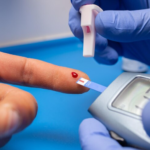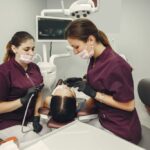As a Pharmacy Specialist, effective communication is one of the most crucial skills to possess. Whether it is interacting with patients, collaborating with fellow healthcare professionals, or providing important medication information, clear and concise communication is essential. In this article, we will discuss six valuable tips that can help you enhance your communication skills as a Pharmacy Specialist.
1. Active Listening
Active listening is the foundation of effective communication. As a Pharmacy Specialist, it is important to give your undivided attention to patients and colleagues. Take the time to fully understand their concerns, questions, or instructions. To demonstrate that you are paying attention, keep your eyes on the person, nod, and give vocal indications. By doing so, you create a comfortable environment and build trust with those you communicate with.
2. Empathy and Understanding
Empathy plays a significant role in effective communication. Patients often face health challenges and may be anxious or confused. As a Pharmacy Specialist, it is essential to understand their emotions and demonstrate empathy towards them. Use kind and compassionate language, and take the time to address their concerns and fears. By showing understanding, you can establish stronger relationships and provide better care.
3. Use Clear and Simple Language
Pharmacy professionals often deal with complex medical information, but it is vital to communicate with patients and colleagues in plain and simple language. Avoid using technical jargon or complicated descriptions that may confuse or intimidate others. Break down complex concepts into easily understandable terms, providing clear explanations and ensuring everyone is on the same page.
4. Be Mindful of Non-Verbal Communication
Communication involves more than just words; non-verbal cues are equally important. Pay attention to your body language, facial expressions, and speaking tone. Maintain an approachable and friendly demeanor to create a welcoming atmosphere for open communication. Additionally, be aware of the non-verbal cues of others, as they can provide valuable insights into their feelings or concerns.
5. Practice Effective Written Communication
As a Pharmacy Specialist, written communication is vital when documenting patient information, writing reports, or providing instructions on medication labels. Make sure what you write is precise, succinct, and devoid of errors. For accurate communication, use correct grammar and punctuation. Proofread your written work to eliminate any potential misunderstandings or mistakes.
6. Build Collaborative Relationships
Collaboration is a crucial aspect of being a Pharmacy technician. Establishing strong relationships with colleagues, including pharmacists, physicians, and other healthcare professionals, is pivotal. Effective communication fosters teamwork, ensuring that crucial information is shared accurately and in a timely manner. Build trust, actively participate in discussions, and respect the insights and opinions of others.
Conclusion
Strong communication skills are a hallmark of a successful Pharmacy Specialist. By implementing these six tips in your daily practice, you can enhance your effectiveness as a communicator. Active listening, empathy, clear language, non-verbal cues, written communication, and collaboration are the pillars of effective communication. By continuously improving these skills, you can provide high-quality care, improve patient outcomes, and excel in your role as a Pharmacy Specialist.










